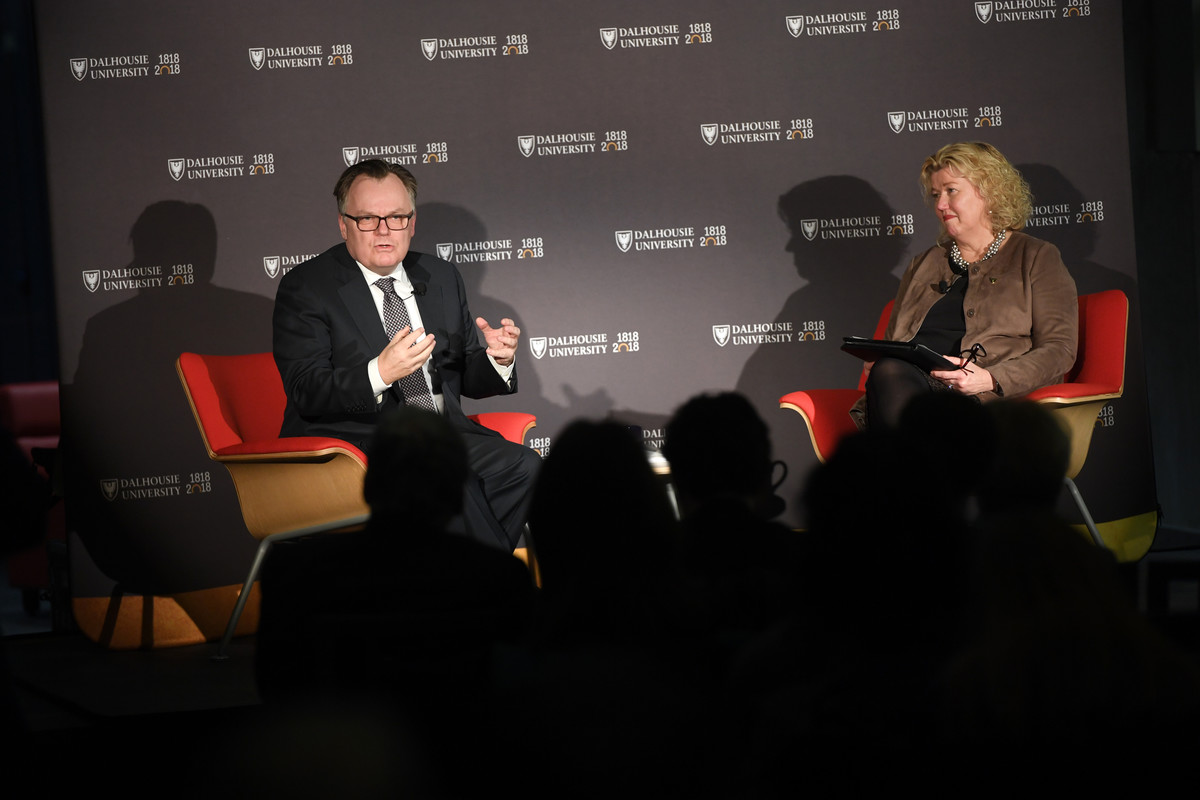Canada’s ambassador and permanent representative to the United Nations (UN) visited Dal last week for a public discussion about Canada’s role in the world and how it can make an even greater difference on the global stage.
Marc André Blanchard emphasized in his fireside chat with Alice Aiken, Dal’s vice-president research, that Canada has the potential to become a world leader in several critical problem areas facing the world today.
‚ÄúCanada has an occasion to make a difference like very few other times in the past,‚ÄĚ said Blanchard at the event, held in the atrium of the Steele Ocean Sciences Building.
As Canada’s top representative at the UN, Blanchard’s job includes promoting the country’s global vision in the world body and discussing with representatives and leaders global issues of interest to Canadian foreign policy. 
Blanchard said Canada has the expertise to lead the world on issues such as climate change and foreign-development assistance, particularly in areas such as sub-Saharan Africa.
‚ÄúIt‚Äôs the right thing to do as a responsible country in the world,‚ÄĚ said Blanchard, commenting on the need to aid and be a part of global initiatives to tackle the world‚Äôs problems.
Parallel priorities
He noted that there are several UN-related global issues and projects that fit in line with Canada‚Äôs goals. They include strengthening governance in developing democracies, women‚Äôs rights (including an ‚ÄúInternational feminist developmental policy‚ÄĚ), working with other countries to counteract climate change, and encouraging finance and development in emerging economies.

Blanchard said that amongst the most pressing of global problems is the global refugee crisis. Recounting his visit to Syrian refugee camps, he said an important Canadian policy goal is to aid in funding for refugee aid and develop policies ensuring refugee resettlement.
Dr. Aiken asked Blanchard to weigh in on some of the opportunities for Canada when it comes to the sustainable development of the ocean, an area in which Dal is a major research leader through the Ocean Frontier Institute and other initiatives.
‚ÄúIt‚Äôs a role that‚Äôs natural for Canada and it‚Äôs so promising,‚ÄĚ he said. He admitted that Canada had made some missteps in the past when it came to developing ocean resources, but that the country had learned from those mistakes.
Blanchard also heralded Romeo Dallaire Child Soldiers Initiative ‚Äď a AVĺ„ņ÷≤Ņ-based research and training project aimed to end the recruitment of child soldiers ‚Äď as an example of a Canadian project representative of Canada‚Äôs potential to change the world.¬†
Blanchard ended with the conclusion that ‚Äúif we only preach‚Ķnothing will happen,‚ÄĚ and that using Canada‚Äôs intellectual resources in making the world a better place is a key focus of Canadian foreign policy.

